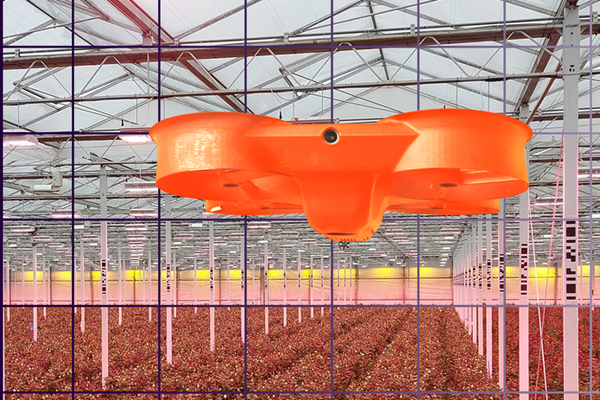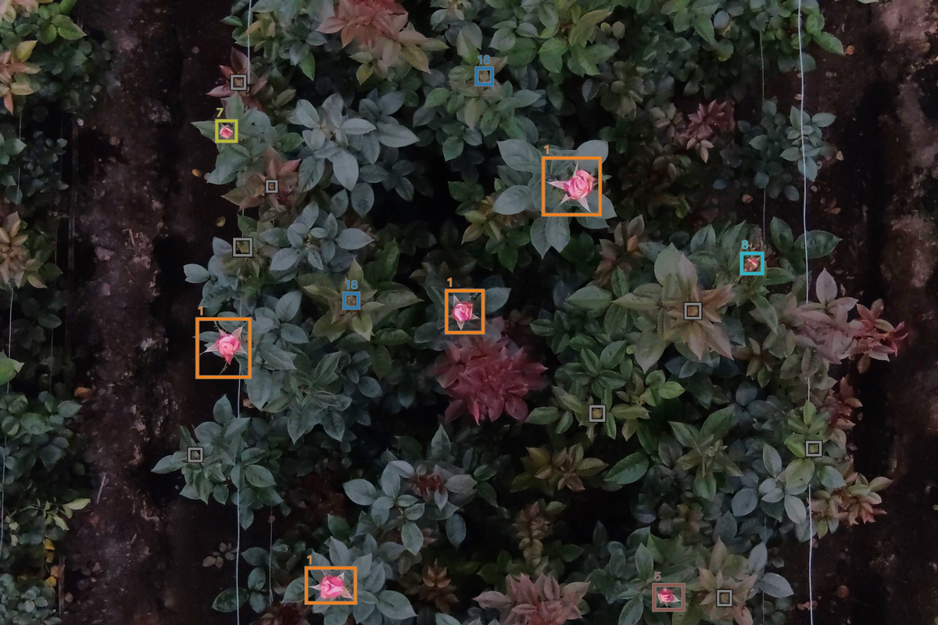
The misalignment between rose production and retail demand is estimated to cost around 50 million euros globally, accounting for 5-10% of the total rose trade. To address these challenges, Corvus Drones and GrowerAdviser are introducing innovative applications for rose yield prediction and powdery mildew detection.
After a year of testing, they have achieved an impressive accuracy rate of 90% for multi-day predictions. Moreover, even small powdery mildew spots, as tiny as 1-2 mm, are automatically detected and mapped in an interactive greenhouse layout.
For rose growers who supply directly to retailers, aligning production with demand is a daily hurdle. Traditional methods of manually counting bud and flower stages are time-consuming and subjective. Many growers experience significant mismatches in production predictions, with an average daily discrepancy of about 20%—potentially rising to 50% for specific varieties.
The rose yield prediction application, developed by Corvus Drones, operates autonomously within greenhouses. It captures images of the crop, which are then analyzed through advanced AI-powered computer vision software. Reports are generated through an interactive web application or via email alerts, making it a straightforward service for growers. This Drone as a Service model is already in use across more than 15 countries, including the Netherlands, Germany, Ecuador, the USA, and Kenya.
In trials conducted with multiple rose growers in the Netherlands and Ecuador, the yield prediction application has proven its reliability. The application boasts a remarkable 90% accuracy for multi-day forecasts and 85% for multi-week predictions, covering varieties such as Red Naomi, Avalanche, Cotopaxi, Sweetness, Tycoon, and Deep Purple.

This technology has outperformed human assessment and prediction capabilities. The high level of precision—90% accuracy—comes from integrating bud and flower stage counts with greenhouse climate data, historical records, and weather forecasts. Data science support from GrowerAdviser, a subsidiary of Quantum_Inc., plays a crucial role in these analytics, which are seamlessly included in the reporting from Corvus Drones. Growers can adopt the Drone as a Service model without significant upfront investments, as the drone is designed to operate in any greenhouse with at least 250 cm of flight space.
In addition to yield prediction, the three companies are also testing technology for powdery mildew detection—one of the most damaging diseases affecting roses globally, resulting in substantial financial losses for growers. The results have exceeded expectations; the application effectively identifies and reports small infestations of 1-2 mm. These infestations are clearly marked on an interactive greenhouse map, enabling growers to take prompt action against potential outbreaks.
